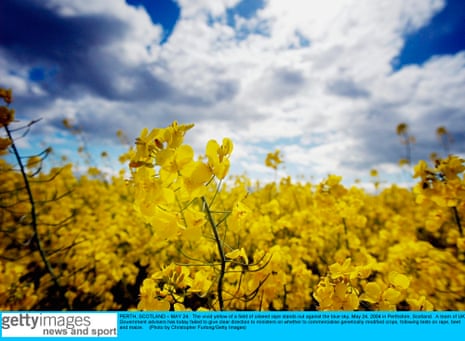The row over genetically modified crops should be a thing of the past because they have failed to live up to their promise, according to Greenpeace, which will publish a report this week highlighting the successes of biotechnology projects it claims are outstripping GM in improving food production around the world.
The environmental campaign group – which has long been against GM foods – claims that a “silent revolution” in agriculture is showing a stronger track record than the GM process, which it labels as having shown disappointing results.
“Whilst the debate between GM and non-GM has used up most of the political oxygen, this report shows it is not the only – or indeed, the best – show in town. There is a growing range of non-GM biotechnologies which show how a growing world population can be fed at a time when natural environments are increasingly stressed,” said Greenpeace chief scientist Dr Doug Parr.
“It’s a silent revolution, making huge strides on the ground for the world’s farmers without the novel risks of GM,” he said. “The debate is not about GM any more; things have moved on.”
However, the group has been accused of “bizarre” hypocrisy by several leading geneticists who point out that the same science is behind both GM and the biotechnologies Greenpeace are backing. Known as MAS – Marker Assisted Selection – they combine genetics and molecular biology to pick out and control the best traits of an individual plant. Essentially, it is using gene technology to improve what is already there rather than introducing new elements as GM does, for example in the “golden rice” project which added vitamin A to rice.
“This is bizarre. What they are talking about is essentially the suite of technologies that spearhead the ‘green revolution’, which eco groups such as Greenpeace have steadfastly rubbished for decades. Now they see it as agriculture’s saviour,” said Johnjoe McFadden, professor of molecular genetics at the University of Surrey.
“If GM is not up to much then why has it been so successful that crops such as soya are now nearly all GM worldwide. Who knows best how to grow their own crops – farmers or Greenpeace?
“Genetic-assisted breeding is certainly very important and will help to generate new crops but it can’t, for example, replace golden rice. Vitamin A-rich rice cannot be bred because it isn’t a trait which already occurs in rice. This places strict limitations on this form of breeding.”
But Greenpeace insisted Vitamin A rice was still “years away” from being ready for use and pointed to MAS successes with rice, wheat and in increasing resistence to disease to crops that are of key importance in their own small geographical areas – such as Indian millet and sorghum in Sudan.
“Our report shows how MAS has a much stronger track record of delivery than GM technologies on properties that genuinely help poorer families globally, yet currently receives little attention,” the group said.
The Greenpeace report on biotechnology will be launched at the International Rice Congress in Bangkok later this week.

Comments (…)
Sign in or create your Guardian account to join the discussion